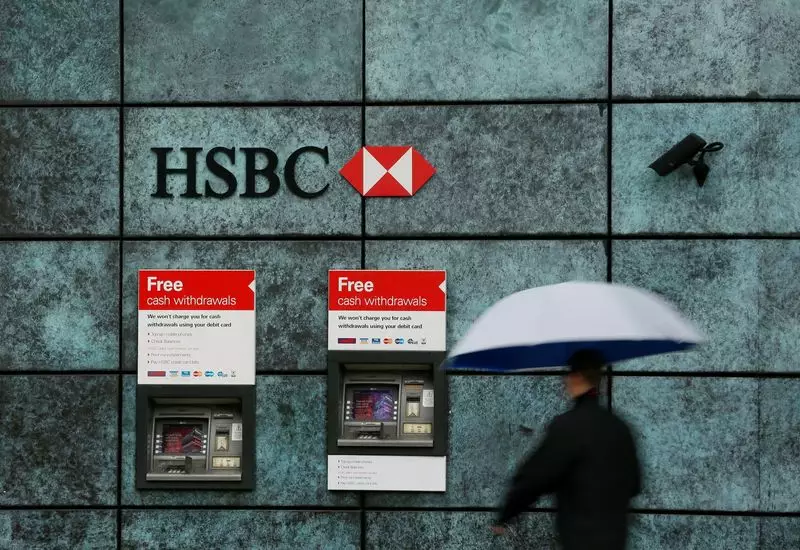In the rapidly evolving landscape of global finance, HSBC Holdings has managed to distinguish itself with a surprisingly robust performance in the third quarter of this year. With a profit of $8.5 billion—an impressive 10% increase from the same period last year—the bank has surpassed analysts’ expectations. This achievement comes against a backdrop of precarious economic conditions and indicates HSBC’s ability to adapt to changing markets effectively. The substantial growth in revenue, particularly from wealth and wholesale banking divisions, has been a key driver of this upward trend and suggests an underlying strength that is vital for navigating future challenges.
The immediate financial markets responded positively to HSBC’s quarterly results, with shares climbing 3.7% to HK$71.60, marking the highest value since August 2018. This surge not only reflects investor confidence but also underscores the market’s anticipation regarding the bank’s plans to enhance shareholder value through an additional share buyback initiative worth up to $3 billion. This follows an earlier $6 billion buyback program, signaling HSBC’s commitment to returning capital to its investors amid fluctuating economic conditions. Such measures not only bolster market sentiment but also aim to optimize the bank’s capital structure.
With the ascension of Georges Elhedery as the new CEO, HSBC has embarked on a significant restructuring aimed at refining its operations and streamlining efficiency. This strategic overhaul represents a pivotal moment for the bank, which has been grappling with the challenges posed by a lower interest rate environment. By dividing its operations into East and West and merging certain functions, HSBC intends to minimize costs while maximising synergies across its extensive geographic reach. The market is eager for further clarification on the financial implications of this restructuring, which is not expected until February of next year, leaving analysts and investors to speculate on its potential impact.
The broader banking landscape is also evolving, with other major financial institutions like Barclays reporting strong earnings, hinting at a recovery in profitability amid uncertain interest rates. HSBC’s optimistic yet cautious stance on its return on tangible equity targets—maintaining a focus on mid-teens for the next two years—suggests that the bank is bracing for a volatile interest rate environment. This strategic positioning may help HSBC mitigate the impact of potential downturns in the market by focusing on operational efficiencies and a robust product offering designed to cater to fluctuating customer needs.
In addition to the notable profit and capital return plans, HSBC announced an interim dividend of 10 cents per share. This payout marks the bank’s third interim distribution in 2024, coming on the heels of prior dividends totaling 41 cents. This consistent commitment to returning value to shareholders is likely to enhance HSBC’s attractiveness as an investment opportunity, particularly as it undergoes restructuring. However, stakeholders will be looking for reassurance that these dividends can be maintained as the bank navigates the complexities associated with its operational changes.
As the financial community digests HSBC’s earnings report, many analysts are cautious yet optimistic. While the reported results are commendable, industry experts are keenly awaiting further details regarding the strategic overhaul’s implications. Discussions during upcoming earnings calls will likely shift focus from immediate results towards these structural changes, with an emphasis on cost-cutting measures and efficiency improvements. The interplay between HSBC’s robust financial performance and its evolving strategies will be crucial for determining its resilience and adaptability in an increasingly competitive banking sector.
HSBC’s recent quarter highlights its financial prowess even in challenging conditions. However, as the bank embarks on significant structural changes, its ability to execute successfully on these fronts will be key to sustaining growth and profitability in the long term. The narrative surrounding HSBC remains dynamic and will be closely monitored by analysts and investors alike as developments unfold.

